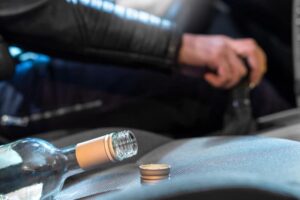Addiction is a disease that many people struggle with, and recovery can be a long journey to complete. It’s common for people to relapse, but that doesn’t mean your journey is over. Instead, it means you have more knowledge about how you can prevent relapse in the future.
In this article, you’ll learn everything you need to know about coming back after a relapse. This includes learning what your triggers are, forgiving yourself, and committing to healing. We hope this helps you on your recovery journey.
Learn What Your Triggers Are
Once you’ve overcome the initial hurdle of withdrawal, you may find yourself thinking about your addiction less than you used to. When you’re doing the things you love, focused on positive, fulfilling habits, there’s no reason to turn to your addiction.
When you relapse, it’s important to take into account why you relapsed. Do you have certain friends who encourage you? Do you get intoxicated in some other way before using your problematic substance? It could even be something as simple as being stressed out after a long day.
Once you know your triggers, you should come up with a plan to avoid these triggers or weaken their effect on you.
Forgive Yourself
More than anything, it’s important not to beat yourself up. Relapse is a very common occurrence, affecting anywhere from 40-60% of the people who go through a treatment recovery program. Moreover, it’s not uncommon for some people to relapse multiple times while recovering from addiction. If you’ve relapsed, you’re not alone.
Being kind to yourself allows for a few different things. First, it prevents you from returning to your substance of choice in order to cope with the guilt. Second, it allows you to have a clearer head when trying to take away actionable lessons from the relapse.
Third, it prevents you from being afraid of failure during recovery. A relapse isn’t a failure; it’s a lesson you can use to strengthen your resolve and better understand the steps you need to take towards recovery.
Commit to Recovery
Forgiveness is more important than anything, but you also need to make sure you’re committed to recovery. Because recovery is difficult, it’s not something you can enter into halfheartedly.
If you’re not fully committed, you may enter a cycle of rehabilitation and relapse. This isn’t healthy, and it can completely upend your life.
It’s understandable to relapse. People relapse multiple times, and you can get help if this describes your situation. You just need to make sure you’re committed to the recovery process, as this is what will ensure your success.
Looking for an Addiction Treatment Center in Miami, Florida?
If so, you’ve come to the right place. At Transitions Recovery Program, we’re committed to making sure you have the recovery services you need. We’re following all necessary precautions during the COVID-19 pandemic to ensure your safety.
We offer treatment for a variety of different addictions, and we have programs designed to ensure you’re getting the care best suited to your needs. If you’re ready to get the help you deserve, call us toll free at 800-626-1980 or fill out our online contact form.

















